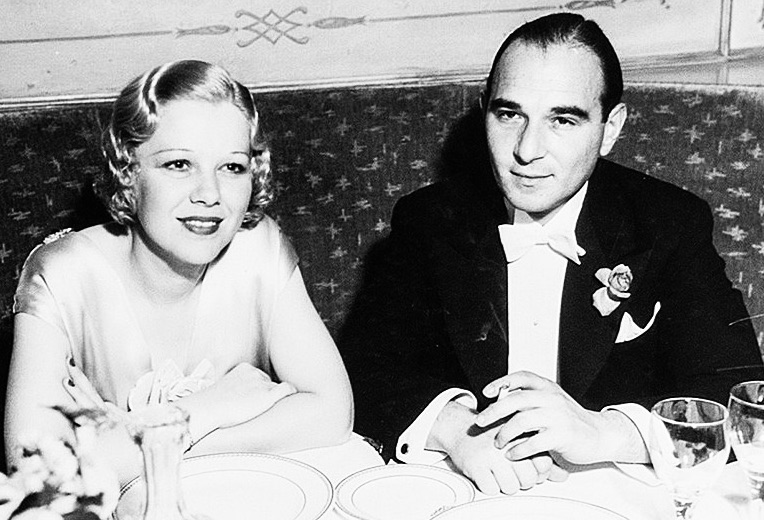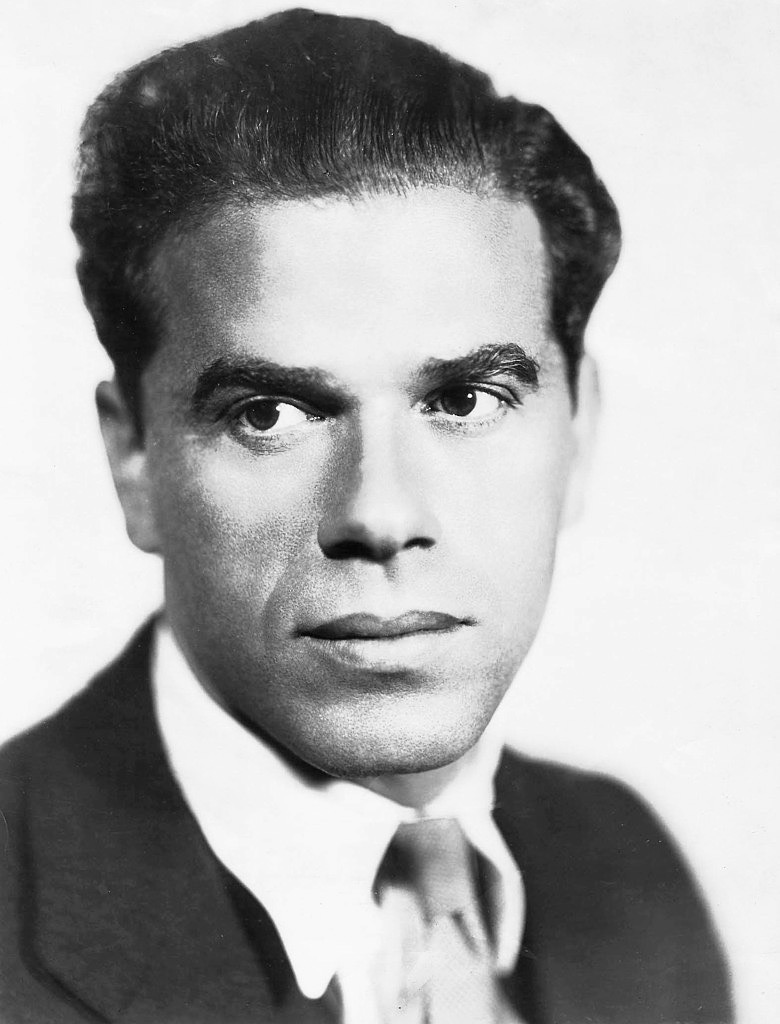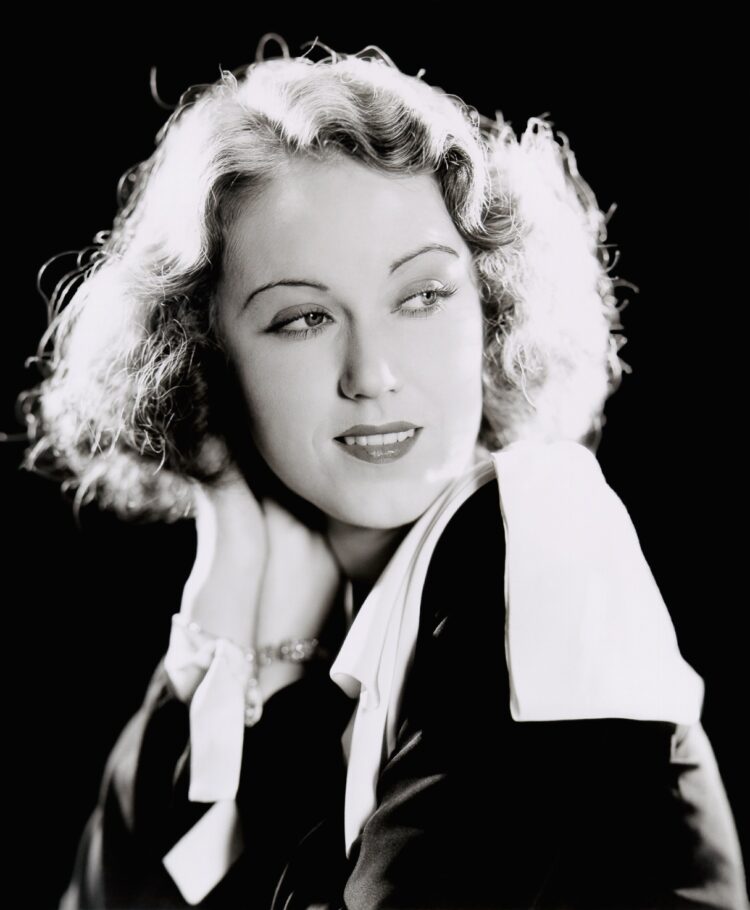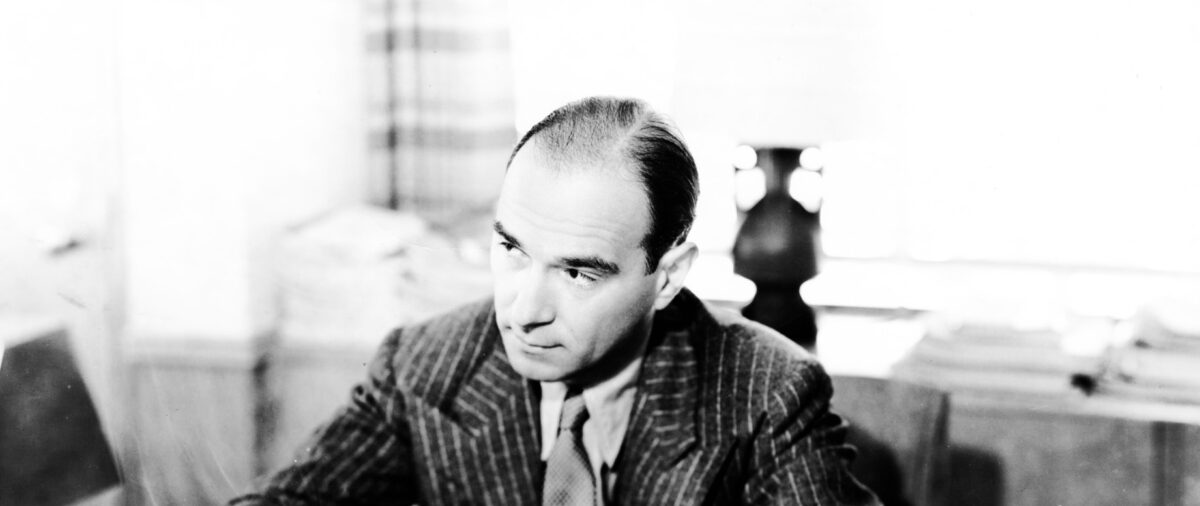Some of Hollywood’s best films, notably It Happened One Night, Mr. Deeds Goes To Town and You Can’t Take It With You, were written by Robert Riskin, one of its finest screenwriters.
During his heyday in the mid-1930s, when he was one of the most high-profile, well-paid scriptwriters, he basked in critical acclaim and enjoyed a rare degree of influence in an industry that often took writers for granted.
Riskin’s writing struck a resonant note with moviegoers because he captured “the spirit of the vernacular, the everyday asides that were part of ordinary people’s conversation and that brought his narratives to life,” says Ian Scott in his authoritative biography, Robert Riskin: The Life and Times of A Hollywood Screenwriter, published by University Press of Kentucky.
“Riskin had the gift of knowing what people had to say about life, how they behaved and thought, what their greatest aspirations were, and their worst fears,” he adds. “It was this talent for picking out the foibles of different personalities that endeared his stories to cinema goers, for they saw in his characters themselves.”
His sparkling career took a nosedive after 1945, and a stroke he suffered in 1950 incapacitated him. Nevertheless, his name still strikes a chord with cinephiles nearly 70 years after his premature death.
Scott, a professor of American film and history at the University of Manchester, is one of Riskin’s admirers, and in his deeply-researched book, he pays tribute to a man who died prematurely.
Born in New York City’s Lower East Side in 1897, he was one of five children born to Jakob and Bessie Riskin, who immigrated to the United States from Russia. He and his two brothers and two sisters all spoke Yiddish and their upbringing was, as Scott notes, “conventionally Jewish.”
Riskin drifted into the entertainment industry accidentally. The owners of a New York shirtmaker that employed him as an officer manager had invested money in a company that churned out silent movies. They liked Riskin and showed him scripts. Riskin knew nothing about movies, but eventually he mastered the art of screenwriting.
He sold his first script to the Warner brothers, for which he received the then grand sum of $10,000. In 1930, Riskin headed to California with the promise of a job at Columbia, a major studio. “Riskin’s sense of sleek, tight dialogue was a perfect match for the emerging sound the need to tell stories with an economy of effort,” writes Scott.

By 1932, Riskin had established himself as “a key figure” in the pantheon of Hollywood screenwriting. “He had immediately demonstrated his credentials as a writer of smart dialogue and witty rejoinders on Frank Capra’s Platinum Blonde in 1931, and in the course of the following year, Columbia head Harry Cohn set Riskin to work on a whole series of projects,” says Scott.
He worked almost exclusively with Capra through the 1930s and 1940s, collaborating with him on five screwball comedies alone between 1931 and 1934. By Scott’s reckoning, Mr. Deeds Goes To Town was “the high-water mark” in the public and press’ clamor for their films.
“There is no doubt that Mr. Deeds was a seminal film for both Capra and Riskin, in terms of their artistic and career development,” says Scott. “Nothing would be the same in their lives after it.”

During World War II, Riskin offered his services to the Ministry of Information in Britain, turning out a stream of effective propaganda films.
Riskin married the actress Fay Wray, who had appeared in King Kong, in 1942.

He returned to Los Angeles permanently in 1945, buying a home in Bel Air, a posh neighborhood whose residents included the actors Cary Grant and Greer Garson and the director Billy Wilder.
He formed his own company, Robert Riskin Productions, but liquidated its assets in 1949.
On December 27, 1950, he had a major stroke that spelled finis to his professional career. He was only 53, in the prime of his life.
Strangely enough, Capra, his best friend, never visited him during his medical crisis. Scott explains Capra’s absence, but it sounds unconvincing. Riskin’s wife was utterly devoted to him, tending to all his needs until his death in September 1955.
Riskin departed from this vale of tears all too early, but his legacy lives on.
